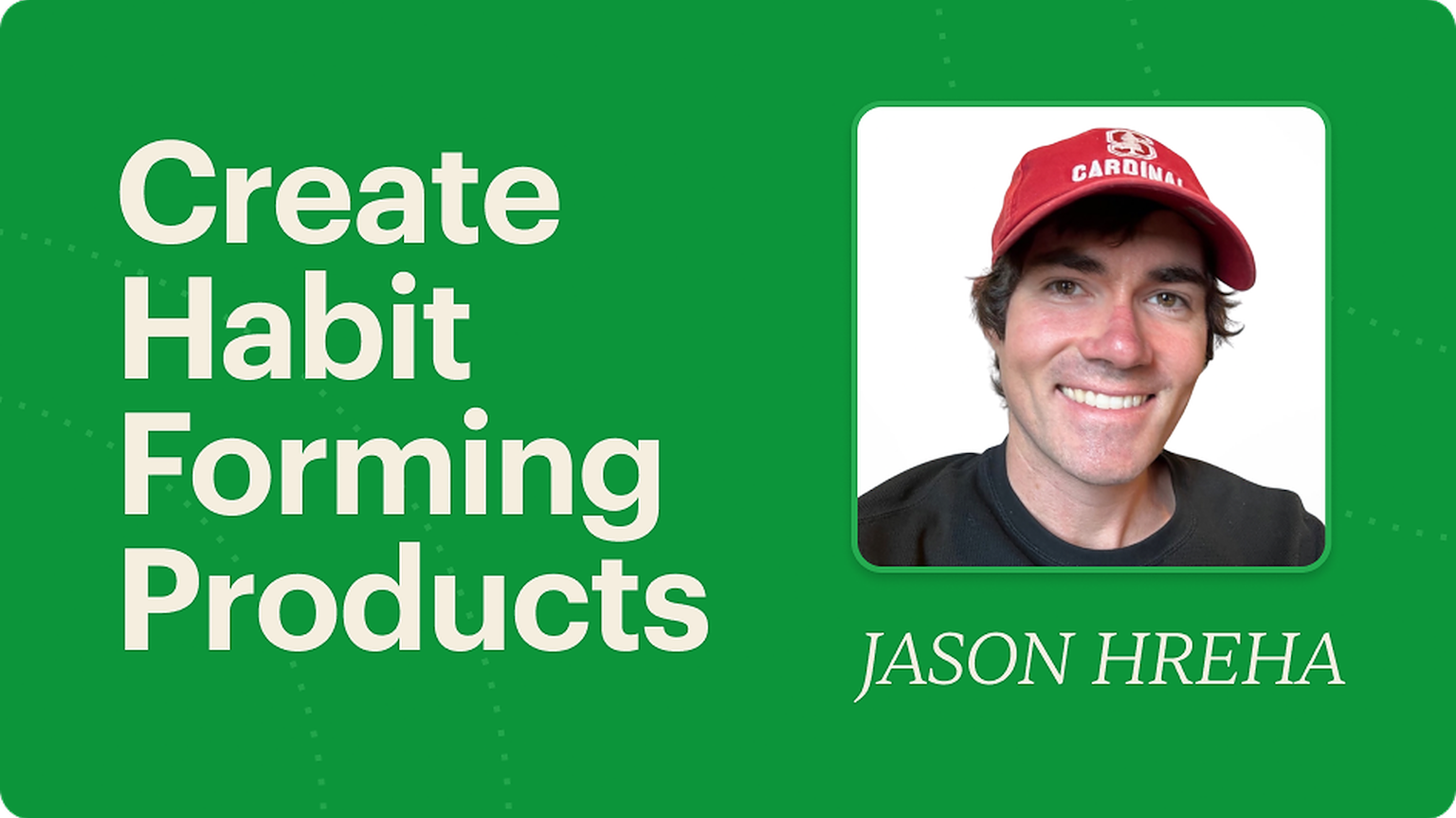How to Create Habit-Forming Products
8 Days
·Cohort-based Course
Get the research, models, and techniques you need to create more engaging and retentive products.
How to Create Habit-Forming Products
8 Days
·Cohort-based Course
Get the research, models, and techniques you need to create more engaging and retentive products.
Course overview
Build habit-forming products using behavioral science
1000s of hours of study and over a decade of experience packaged into one week of learning. Use behavioral science to create habit-forming products.
Master the research and frameworks that will help you increase product engagement and retention
Learn how to troubleshoot behavior-change problems
It's hard to know where you should start when your users aren't behaving as expected. I'll teach you practical yet powerful frameworks and processes you can use to understand what's going on.
Learn a practical and effective habit formation process
You'll get a step-by-step process you can use to approach any habit problem you encounter. This is based on over a decade of applied behavioral science and habit formation work. I've never taught this to anyone before.
Learn how habit formation works and how to apply this knowledge to your product
We'll talk about the "truth of habit formation". There's a lot of false information out there about how habit formation works. We'll cut through all the confusion and talk about what the science has to say.
Learn which research works and which research is a dead-end
Only 36% to 62% of behavioral science research can be replicated. Many (if not most) new findings coming out are false. Learn how to stay away from alluring but unreliable research, and learn which behavioral science research is worth using.
See what people have to say
Stephen Scott
Erythean Martin
Rick Ton
Naveed Lalani
Be the first to know about upcoming cohorts
How to Create Habit-Forming Products
Meet your instructor
Jason Hreha
Jason Hreha
Jason has been an applied behavioral scientist for close to 15 years. He founded the first behavioral science firm in Silicon Valley, which focused on helping startups build better, more engaging products.
He studied neuroscience at Stanford University, and was lead researcher in BJ Fogg's Stanford Persuasive Technology Lab. While in the lab, he was involved in the creation of the field now commonly known as Behavior Design. Jason's work in the lab was featured at the World Economic Forum in Davos.
Jason has also collaborated extensively with behavioral economist Dan Ariely. The two of them cowrote a series of workbooks on how to apply behavioral economics research to marketing and product problems. Jason also helped Dan design the first version of Kavaanu (later renamed Timely), which was eventually acquired by Google.
Jason co-founded Walmart's behavioral science team, and was Global Head of Behavioral Science for the company—applying research to dozens of marketing, product, and store initiatives at the company. The team was responsible for the new member experience at Sam's Club, and was integral in the creation of new store concepts (Sam's Now), in-store order pickup, the in-store return experience, and checkout design.
A serial entrepreneur, he's had one exit (Kite.io) and is running a fast-growing recruiting and staffing firm (Persona) that uses behavioral science research to recruit more effectively.
Be the first to know about upcoming cohorts
How to Create Habit-Forming Products
Course syllabus
Week 1
Oct
26
How to Create Habit-Forming Products: Day 1
Oct
28
How to Create Habit-Forming Products: Day 2
Week 2
Oct
31
How to Create Habit-Forming Products: Day 3
Nov
1
Optional: Office Hours
Nov
2
How to Create Habit-Forming Products: Final Day
Post-course
Nov
3
Optional: Office Hours
Nov
4
Optional: Office Hours
Course schedule
6-8 hours per week
Wednesday, Friday, Monday, and Wednesday
2:00PM Central Time (tentative)
The course will consist of 4 separate live workshops. Each workshop will be between 1 and 2 hours.
Behavior-Design Project
2 Hours
You'll apply what you've learned in your own behavior design project.
Behavior-Design Lesson (Optional)
2-4 Hours
Each student will have the option to create a presentation, video, or written piece about their favorite insight or lesson from the course.
Be the first to know about upcoming cohorts
How to Create Habit-Forming Products
Learning is better with cohorts
Active learning, not passive watching
This course builds on live workshops and hands-on projects
Interactive and project-based
We will be “learning in public". You'll be encouraged to share your projects and insights on social media.
Learn with a cohort of peers
Join a community of like-minded people who want to learn and grow alongside you
Frequently Asked Questions
Be the first to know about upcoming cohorts
